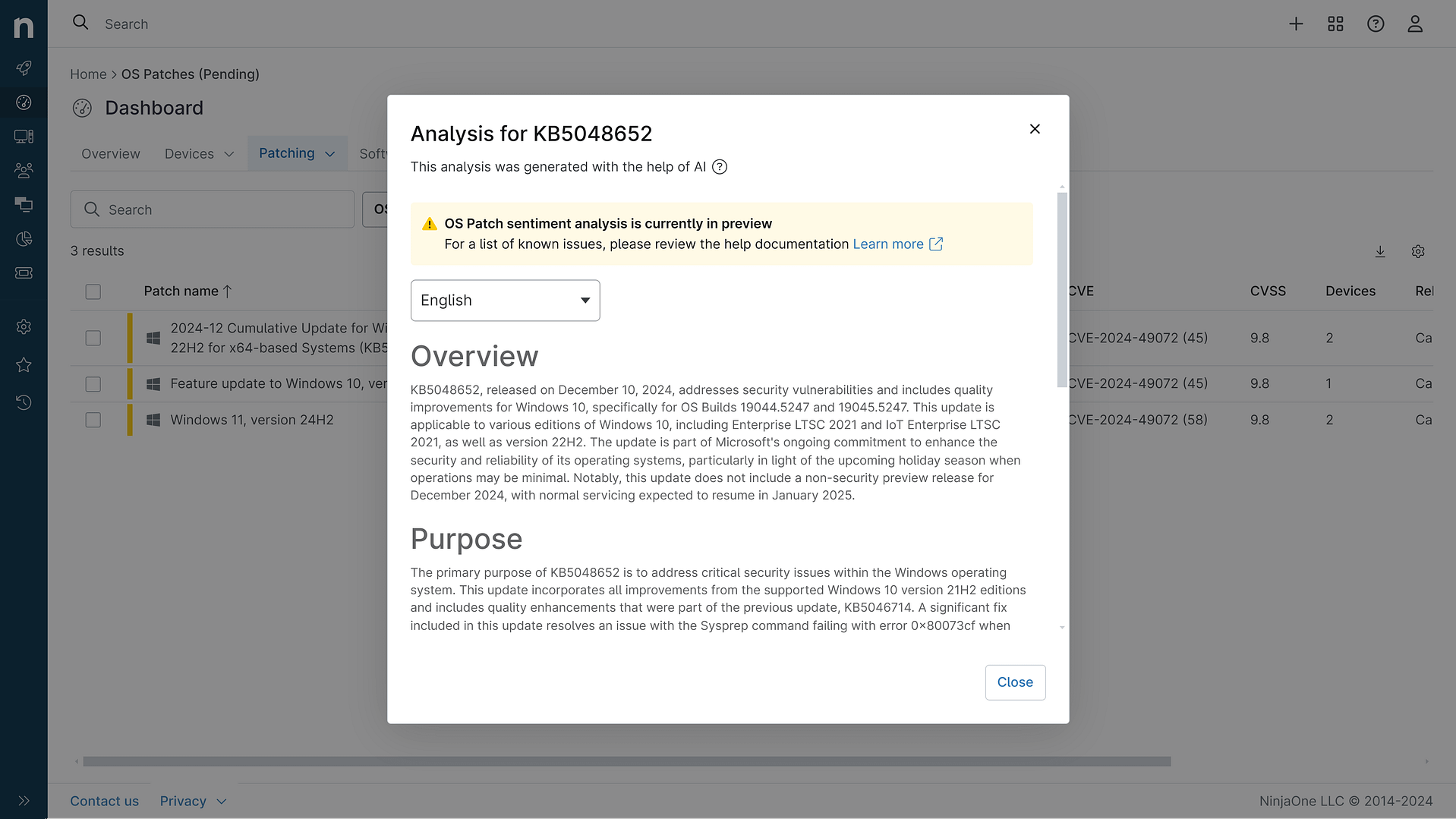KB5041027: Overview with user sentiment and feedback
Last Updated December 23, 2024
Probability of successful installation and continued operation of the machine
Overview
The KB5041027 update, released on July 9, 2024, is a Security Only Update for the .NET Framework versions 2.0, 3.0, 3.5 SP1, and 4.6.2 specifically for Windows Server 2008 SP2. This update addresses a critical remote code execution vulnerability identified as CVE-2024-38081, which could allow an attacker to elevate privileges on the affected system. The update is part of Microsoft's ongoing commitment to enhance security for legacy systems that are now in extended support, meaning they only receive security updates and no longer receive optional updates. Users are reminded that Windows Server 2008 R2 SP1 has reached the end of mainstream support and is now only eligible for Extended Security Updates (ESU).
General Purpose
The primary purpose of KB5041027 is to mitigate a significant security risk associated with the .NET Framework by addressing the CVE-2024-38081 vulnerability. This vulnerability could potentially allow unauthorized users to execute arbitrary code with elevated privileges, posing a serious threat to system integrity. The update modifies the behavior of the System.IO.Path.GetTempPath method, which now invokes the GetTempPath2 Win32 API if available, changing the way temporary paths are resolved. This change is crucial for maintaining the security posture of systems running older versions of the .NET Framework, particularly in environments that may still rely on these frameworks for legacy applications.
General Sentiment
The general sentiment surrounding KB5041027 is mixed. While the update is essential for addressing a critical security vulnerability, there are concerns regarding the breaking changes introduced by the update, particularly the modification of the GetTempPath method. Some users have expressed frustration over the need for potential code changes in their applications to adapt to this new behavior. Additionally, the known issues section highlights the risks associated with opting out of the security fix, which Microsoft does not recommend. Overall, while the update is necessary for security, the implications of the changes may lead to challenges for some users.
Known Issues
- The update introduces breaking changes to the System.IO.Path.GetTempPath method, which may affect applications relying on its previous behavior.
- Users may need to modify their applications to accommodate the new method return values.
- Opting out of the security fix is possible but not recommended, as it could expose systems to the vulnerability.
Disclaimer: We take measures to ensure that AI-generated content is of the highest possible quality, but we cannot guarantee its accuracy and recommend that users do their own independent research. Generated on 2024-12-21 09:44 PM
